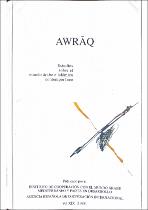| dc.contributor.author | Moosa, Najma | |
| dc.date.accessioned | 2022-10-05T09:00:28Z | |
| dc.date.available | 2022-10-05T09:00:28Z | |
| dc.date.issued | 1998 | |
| dc.identifier.citation | Moosa, N. (1998) “Women's eligibility for the qadiship (judicial office)”, Awraq: Estudios sobre el mundo árabe e islámico contemporáneo, gencia Española de Cooperación Internacional (AECID) 19: 203-227. | en_US |
| dc.identifier.uri | http://hdl.handle.net/10566/8010 | |
| dc.description.abstract | There is no express Qur'anic text or tradition (Sunna) of Prophet Muhammed (P.B.U.H) for against the idea of women occupying the office of judge (qadi) which implies that God never intended to discriminate in this area. However, scholarship has developed which deny women this right. These juristic rules are often perceived as those of Islam itself. It is therefore not surprising that there is no historical data referring to the possible appointment of women judges. Females were considered 'unfit for the difficulties of high office and for judgments being made dependent on them. | en_US |
| dc.language.iso | en | en_US |
| dc.publisher | AWRAQ | en_US |
| dc.relation.ispartofseries | (AECID);19 | |
| dc.subject | Eligibility | en_US |
| dc.subject | Qadiship | en_US |
| dc.subject | Judicial Office | en_US |
| dc.subject | Shari'a | en_US |
| dc.subject | Muslim women | en_US |
| dc.title | Women's eligibility for the qadiship (judicial office) | en_US |
| dc.type | Article | en_US |

